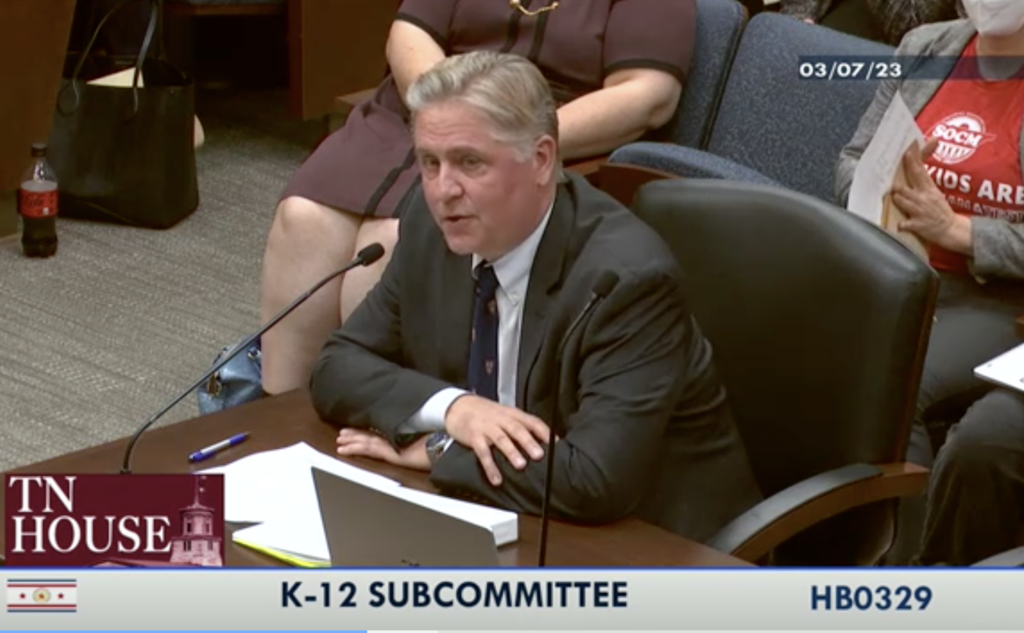
Tennessee’s biggest professional teachers’ organization is less than thrilled with the governor’s proposal to increase pay for educators. That’s because baked into the bill is a rule that would further chip away at their ability to organize.
In addition to upping teacher salaries, this bill would ban districts from letting teachers pay “professional employees’ organization” dues through payroll deductions.
“A bill like this happens almost every year,” said Jim Wrye, chief lobbyist for the Tennessee Education Association. “The disappointing part about this year is that it came out of the administration attached to what should have been a wonderful, triumphant support of teachers. But it has this second section that’s really just an attack.”
Wrye said a good portion of TEA members use payroll deductions, and some have been doing it for years. Currently, districts get to decide for themselves whether they allow for that payment method. And since Tennessee has right-to-work laws, nobody can be forced to join TEA, or any employee organization.
That was the backdrop of the conversation when Rep. Sam McKenzie, D-Knoxville, questioned Brent Easley from the governor’s office about the bill.
“Why tack this other piece on that has nothing to do with compensating our teachers?” McKenzie asked.
“Both of these items, the governor believes are good public policy, and so we put both of those items in this proposal together,” Easley responded.
Easley did not elaborate on what research or outreach informed the governor’s stance.
Wrye of the TEA notes that other public servants like firefighters and police officers also use payroll deductions for professional dues.
Gradually increasing teacher pay
Despite disagreements over the second section of the bill, the first part appears to have broad support. That portion laid out the plan for increasing the minimum salary schedule.
The bill prescribes that teachers should earn a base salary no less than $42,000 in the 2023-24 school year. After that, the plan calls for $44,500 the next year, then $47,000 the year after that. Finally, in the 2026-2027 school year, Tennessee teachers should make no less than $50,000 annually.
Teacher pay has played a major role in discussions to ease staffing issues at schools. The state has also been looking at ways to broaden its educator pipeline, for example, through its Grow Your Own initiative.
The Republican majority leaders of both the House and Senate are co-sponsoring the bill on behalf of Gov. Bill Lee. An amendment rewrote the caption bill, which went before the House K-12 Subcommittee Tuesday.
Lawmakers passed the measure on to the House Education Administration Committee, with Rep. McKenzie voting against it.

